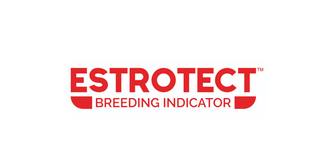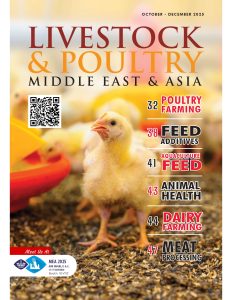Using artificial insemination (AI) with a cattle herd doesn’t require as much time or labor as you might think. With the advent of timed breeding protocols and quality visual estrus detection aids, AI has become more effective and efficient.“You’re listening to the cows just a little bit, but you still have that scheduling of it and utilizing your AI tech,” says Adrienne Lulay, independent beef sales representative for All West Beef/Select Sires.Lulay joined the Kansas State University’s Beef Cattle Institute Cattle Chat podcast with their team of veterinarians to discuss AI and offer some tips on getting the most from cattle breeding programs.Both Lulay and Bob Larson, DVM, professor at Kansas State University, agree that implementing estrus detection with visual breeding indicator aids can help improve the results of AI breeding.
Looking back
In the past few decades, AI breeding protocols have come a long way. Larson notes the move from daily estrus detection to timed AI as being a significant shift.“Really, one of the big constraints to utilizing artificial insemination in beef cattle was the need to estrus detect twice a day every day and then follow that up with insemination twice a day,” says Larson.Only a handful of cows or heifers were bred daily, and often the beef producer had to be their own AI specialist.“That’s a lot of skills to train someone to do, and then they only do it once a year,” adds Larson.The advent of timed AI protocols became a game-changer in allowing professionals, like AI technicians or veterinarians, to breed many females effectively and quickly. But, timed AI wasn’t a cure-all.“It didn’t perfectly get all the heifers or cows to ovulate when you wanted them to,” says Larson. “Now, over the last few years, we’ve added back some estrus detection.”
Estrus detection support
If you are using timed AI, you can pair it with visual estrus detection aids, like breeding indicator patches, to enhance your breeding program. Then, you can breed the first cows or heifers exhibiting strong estrus intensity and hold off on breeding a second group until more are in estrus.“We get the best of both worlds – the estrus detection and timed insemination,” says Larson.Lulay estimates that adding an estrus detection aid to a timed AI breeding provides a 10% increase in conception rates.“There’s definitely very obvious heat detection aids now that are available,” says Lulay. “Something like an ESTROTECT patch or even just chalking their back so you know they actually went into heat. You can check just a couple times a day, and you can peel off those cows that were in heat.”There can also be some cost savings when an estrus detection aid is part of the breeding program by reducing the drugs required.“You can skip your GnRH (gonadotropin-releasing hormone) shot at that timed AI because so few of them actually need it because you saw they came into heat,” says Lulay.
Extra insurance
Using estrus detection aids can be a way to alert you that something went wrong in the protocol.An example Lulay shares is a breeding project where the cows weren’t exhibiting any estrus with breeding indicator patches after the producer implemented the breeding protocol.“None of the cows were coming into heat, and there were no activated patches,” says Lulay. “It turns out they had flip-flopped their hormone injections. The patches tipped us off that something wasn’t right.”Having someone who can accurately determine the signs of estrus intensity with the assistance of estrus detection aids should also be considered.“A well-trained person who can read the cows with the assistance of estrus detection aids is usually pretty good at getting the right timing for insemination,” says Larson.




















